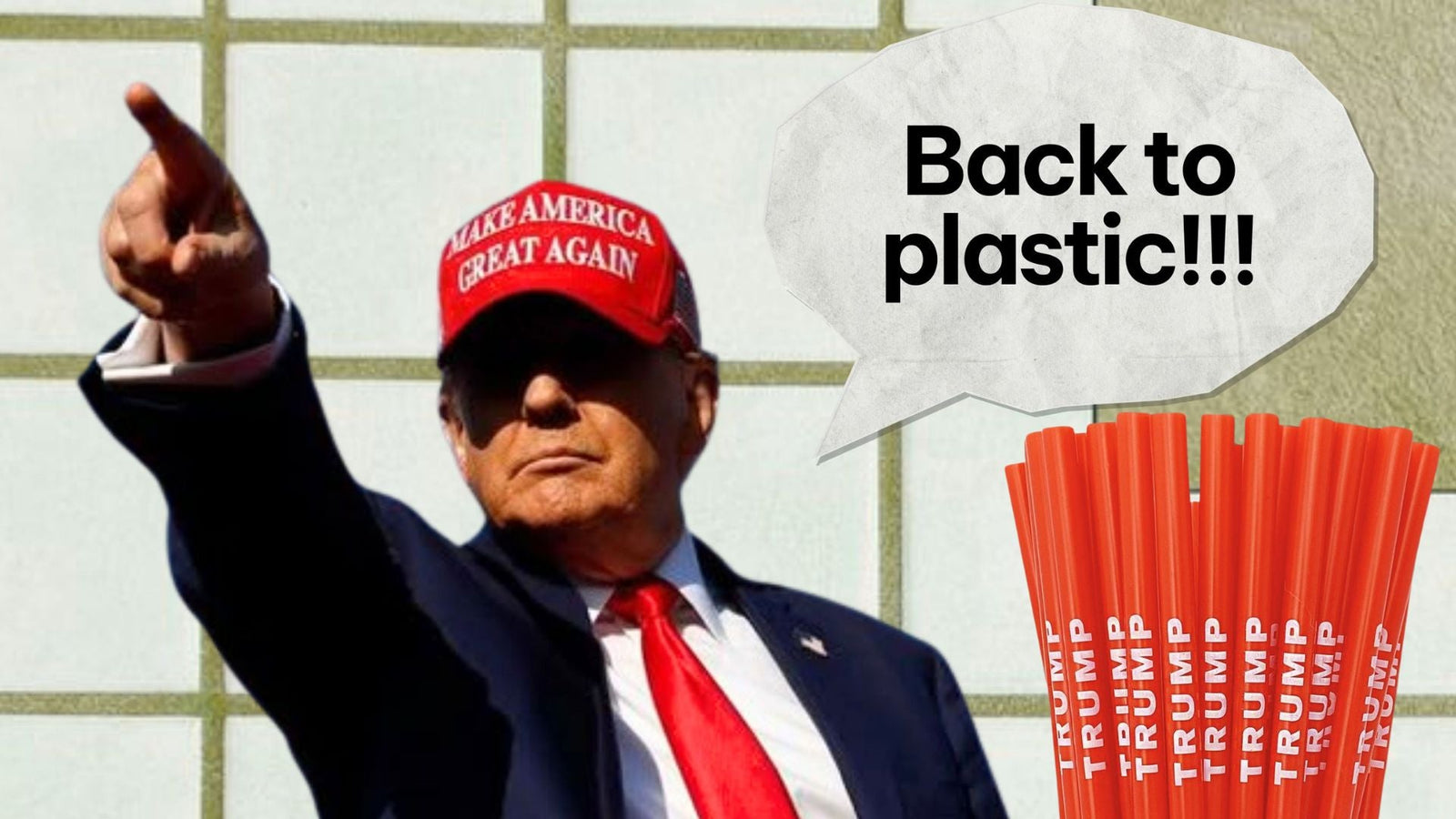Trump's Push for Plastic Straws – What Happened?
In a controversial move, former President Donald Trump recently signed an executive order promoting plastic straws over paper alternatives, criticizing the latter as ineffective. His statement, "Back to plastic," has reignited debates over single-use plastics at a time when global efforts to reduce plastic pollution are gaining traction.
This decision reverses former President Joe Biden’s initiative to phase out single-use plastics in federal operations by 2035. The policy was aimed at mitigating plastic waste, which contributes significantly to environmental degradation.
Why Are Plastic Straws a Problem?
While Trump’s endorsement of plastic straws may seem like a minor issue, the implications are significant. Here’s why plastic straws are a major environmental concern:
-
Non-recyclable and Persistent: Plastic straws are typically made from polypropylene, which is not widely recyclable. They take approximately 200 years to decompose, adding to the growing plastic waste problem.
-
Microplastic Contamination: As plastic straws break down, they release microplastics into the environment, which are now being detected in water, food, and even human blood.
-
Harm to Marine Life: Plastic straws frequently end up in oceans, where marine animals mistake them for food. This can lead to injuries, blockages, and death.
The Broader Impact of Plastic Pollution
Plastic pollution is not just about straws. Each year, over 8 million metric tons of plastic waste enter the ocean, affecting marine biodiversity and human health. Studies show that humans consume about a credit card's worth of plastic each week through contaminated food and water. The long-term effects of microplastics on health are still being studied, but early findings indicate links to hormonal disruptions, inflammation, and even cancer.
The Global Fight Against Plastic Pollution
Despite Trump’s push for plastic, many countries and organizations are actively working to reduce plastic pollution:
-
The Global Plastics Treaty: The United Nations is negotiating a legally binding treaty that addresses the entire lifecycle of plastics to curb pollution on a global scale.
-
National Bans on Single-Use Plastics: Countries like Canada, the UK, and members of the European Union have implemented bans on plastic straws and other single-use plastics.
-
Corporate Responsibility: Many businesses, including global brands like Starbucks and McDonald's, have phased out plastic straws in favor of paper and biodegradable alternatives.
-
City and State-Level Bans: In the U.S., several states, including California, New York, and Washington, have enacted restrictions on single-use plastics.
The Economic Argument for Plastic Reduction
Opponents of plastic bans often cite economic concerns, arguing that eco-friendly alternatives are more expensive. However, research suggests that the long-term costs of plastic pollution such as environmental clean-up, healthcare costs from exposure to microplastics, and damage to marine ecosystems, far outweigh the short-term convenience of cheap plastic production.
Public Opinion on Plastic Straws
Consumer attitudes are also shifting. Surveys indicate that a growing number of people support bans on single-use plastics. Many consumers are willing to pay a small premium for sustainable alternatives, recognizing the environmental impact of their choices.
Sustainable Alternatives: The Right Choice for the Future
Rather than reverting to harmful plastic products, businesses and individuals should focus on sustainable solutions. Brands like EQUO offer innovative, eco-friendly alternatives such as compostable straws made from natural materials like sugarcane and coffee. These straws decompose within a year, leaving no trace of microplastics or harmful chemicals.
How You Can Make a Difference
-
Choose Sustainable Products: Opt for compostable or reusable straws and utensils.
-
Support Plastic Bans: Advocate for stronger regulations on single-use plastics.
-
Educate and Spread Awareness: Share information about the dangers of plastic pollution and promote sustainable alternatives.
-
Reduce Overall Plastic Use: Bring your own reusable containers, bags, and cutlery when dining out or shopping.
-
Participate in Clean-Up Efforts: Join local or global initiatives to clean up beaches, rivers, and parks affected by plastic waste.
Conclusion
Trump’s “Back to Plastic” statement may be a step in the wrong direction, but global efforts to combat plastic pollution are stronger than ever. With increasing awareness, legislative actions, and corporate commitments, the world is moving towards a future where single-use plastics are no longer the norm.
Each of us has a role to play in this transition. By making informed choices and supporting eco-friendly alternatives, we can continue moving towards a cleaner, more sustainable planet.


